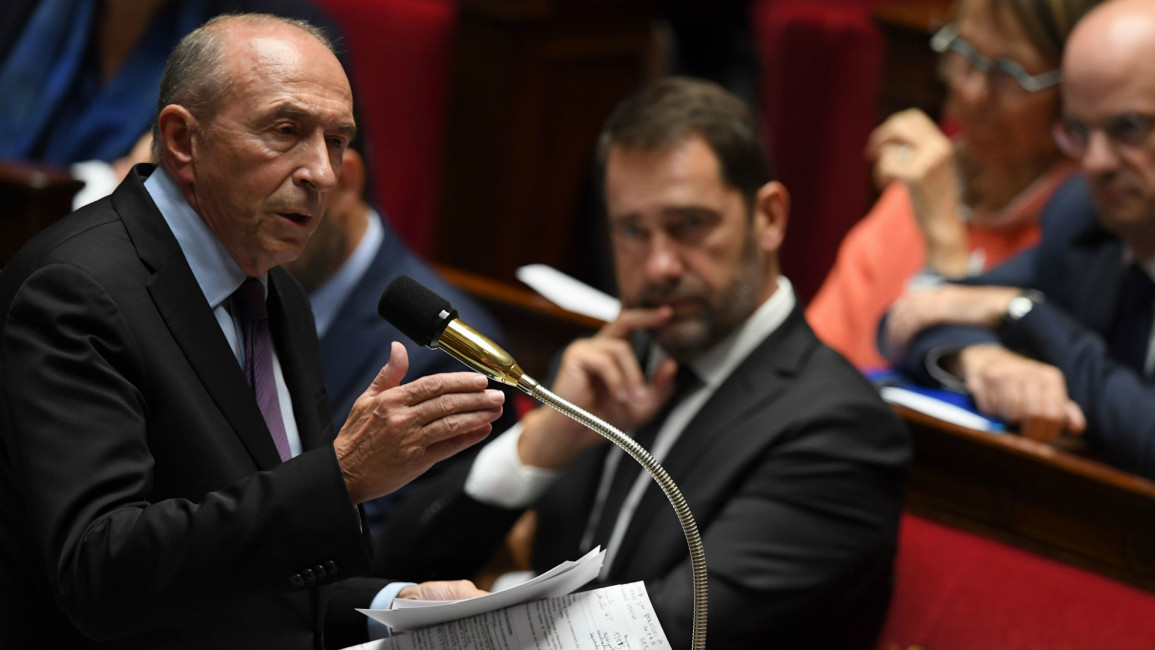'A lasting response to a lasting threat': France's parliament overwhelmingly approves new anti-terror law
The law was approved by 415 votes to 127, with 19 abstentions.
It has encountered little resistance from a public traumatised by a string of attacks, despite criticism that it will undermine civil liberties.
The vote comes just two days after more bloodshed, after two 20-year-old women were stabbed to death in the Mediterranean port city of Marseille.
In Paris, anti-terrorism police are also investigating the discovery of a homemade bomb and a cellphone detonator in the hallway of a building in the wealthy 16th Arrondissement on Saturday.
Petrol had been sprinkled around the canisters, sources close to the inquiry said.
Five people in their early 30s were arrested over the incident, including one who is on France's terror watch list.
The stabbings in Marseille brought the number of people killed in attacks claimed by or attributed to extremists in France since January 2015 to to 241. Many of these attacks have been claimed by the Islamic State group.
The group, which is fast losing territory across the remaining parts of its self-proclaimed caliphate in Iraq and Syria, was quick to claim responsibility for the Marseille assault, which was carried out by a 29-year-old Tunisian.
Interior Minister Gerard Collomb has defended the anti-terror bill as a "lasting response to a lasting threat", but it has come under fire from the French left and human rights groups.
As the parliament session kicked off Tuesday, Collomb noted that the state of emergency did not prevent the Marseille attack.
"That means we need to be incessantly vigilant, seeing to it that our intelligence services can intervene well in advance every time," he said.
The new law gives authorities the power to confine suspected extremist sympathisers to their neighbourhood without the prior approval of a judge, and to throw a wide security cordon around places or events deemed vulnerable to attack.
It also allows the authorities to shut down a mosque or other place of worship if preachers are found to have incited attacks, glorified terrorism or circulated radical "ideas and theories".


